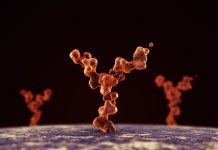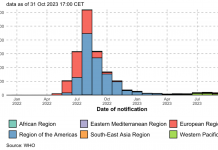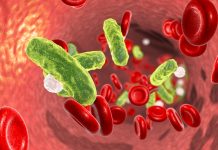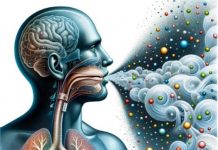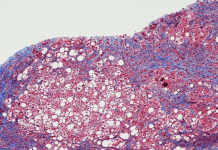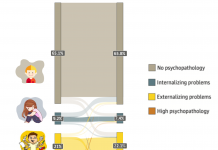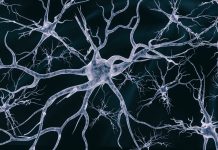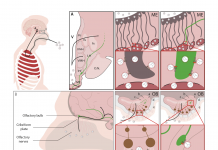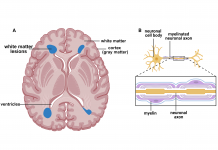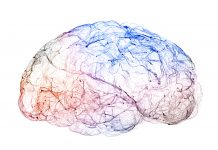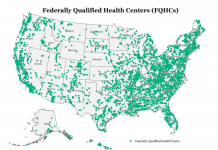Open Access Government produces compelling and informative news, publications, eBooks, and academic research articles for the public and private sector looking at health, diseases & conditions, workplace, research & innovation, digital transformation, government policy, environment, agriculture, energy, transport and more.
Home 2024
Archives
High-resolution snapshots of antibody repertoires as potential correlates of protection
Klaus Eyer from ETH Zurich describes high-resolution snapshots of antibody repertoires as potential correlates of protection.
MPOX: Research priorities for threat reduction
Concerted efforts are needed to close knowledge gaps around mpox to improve preparedness and response efforts for this neglected disease.
Sepsis and the killer platelets
Dermot Cox BSc, PG Dip Ed, PhD, Pharmacology Lead from the School of Pharmacy and Biomolecular Sciences – RCSI University of Medicine & Health Sciences, discusses sepsis and the killer platelets.
Revolutionising disease detection: The emergence of non-invasive VOC breathomics
Breathomics marks a revolutionary approach to disease detection by analyzing the chemical composition of exhaled breath.
Mongolia and the One Health Approach
Mongolia’s unique ecosystems and cultures come with an equally unique set of wildlife management challenges.
The future of AVS, dizziness and vertigo in emergency departments: Part I. Towards a...
In this first of five articles, Dr Millie Nakatsuka discusses the socio-economic implications associated with the diagnosis of acute vestibular syndrome and why more cost-effective and sustainable approaches are needed.
Nutritional management of aging pets
Morgan A. Key from Hill’s Pet Nutrition outlines the changes associated with aging pets and how nutrition can help.
Building resilience: Key to protecting adolescent mental health
Essi Viding, Pasco Fearon, Tom Wu, Alexander Lloyd, Laura Lucas, Roslyn Law, and Jaime Smith discuss new approaches to preventing adolescent mental health problems from emerging.
Lessons from Libby: Understanding the impact of asbestos exposure
Jean C. Pfau, Scientific Consultant at the Center for Asbestos Related Disease, shares the devasting story of asbestos exposure occurring in a Rocky Mountain town of Montana and the critical lessons that can be learned from this event.
Sepsis Canada: Building a national research network for sepsis awareness
Sepsis is a life-threatening condition estimated to affect 49 million people annually worldwide; yet it is not widely understood. In this article, we hear how Sepsis Canada is working to promote sepsis awareness through supporting research, public education, and cross-disciplinary training.
Chronic organ damage: Understanding fibrosis
Fibrosis was once considered irreversible, resulting from chronic organ damage; Ken-Ichi Kobayashi from Notre Dame Seishin University tells us why the possibility of treatment to reverse the disease is gaining attention.
The long shadow of childhood mental health problems
Dr Niamh Dooley and Professor Mary Cannon explore what young adult life looks like for individuals who had mental health problems as children.
Exploring HER-096: A novel approach to Parkinson’s Disease
Parkinson’s disease, a progressive neurodegenerative disorder, poses significant challenges for both patients and researchers. In a recent interview with Henri Huttunen from Herantis Pharma Plc, we delved into the intricacies of their potential novel disease-modifying therapy, HER-096.
Brain infection by SARS-CoV-2: Lifelong consequences
The WATCH team, founded to elucidate the role played by specialized brain cells called tanycytes in various physiological processes, has been investigating how and where the SARS-CoV-2 virus infects the brain, and some long-term consequences of this neuro-invasion.
A wonder therapy for knee osteoarthritis
Professor Shaw-Ruey Lyu from the Dalin Tzu-Chi Hospital discusses the benefits of arthroscopic cartilage regeneration facilitating procedure (ACRFP) as an alternative to traditional methods of treating knee OA.
What is the link between white matter lesions and neurodegeneration?
Tara M. DeSilva from the Department of Neurosciences, Cleveland Clinic, examines the link between white matter lesions and neurodegeneration.
Primary care and medical education for Japan’s ageing population
Prof Junji Haruta from Keio University highlights Japan’s ageing population, focusing on challenges and innovations in primary care, plus medical education.
Treatments for ADHD: Can neurotherapies help treat children and adults?
Professor Katya Rubia from the Institute of Psychiatry, Psychology, and Neurosciences at King’s College London discusses the potential of non-invasive brain therapies, including neurofeedback, as treatments for ADHD.
Addressing ageism in healthcare through gerontological nursing
Sherry Dahlke, Associate Professor at the Faculty of Nursing, University of Alberta, discusses the impact of ageism in healthcare and why gerontological nursing education is vital for improving awareness and patient care.
Role for retired internists in rural, underserved communities
Richard J Santen MD, Emeritus Professor of Medicine, Davison of Endocrinology and Metabolism, University of Virginia, Charlottesville, Virginia, U.S., charts the role of retired internists in rural, underserved communities, including diabetes telemedicine.

